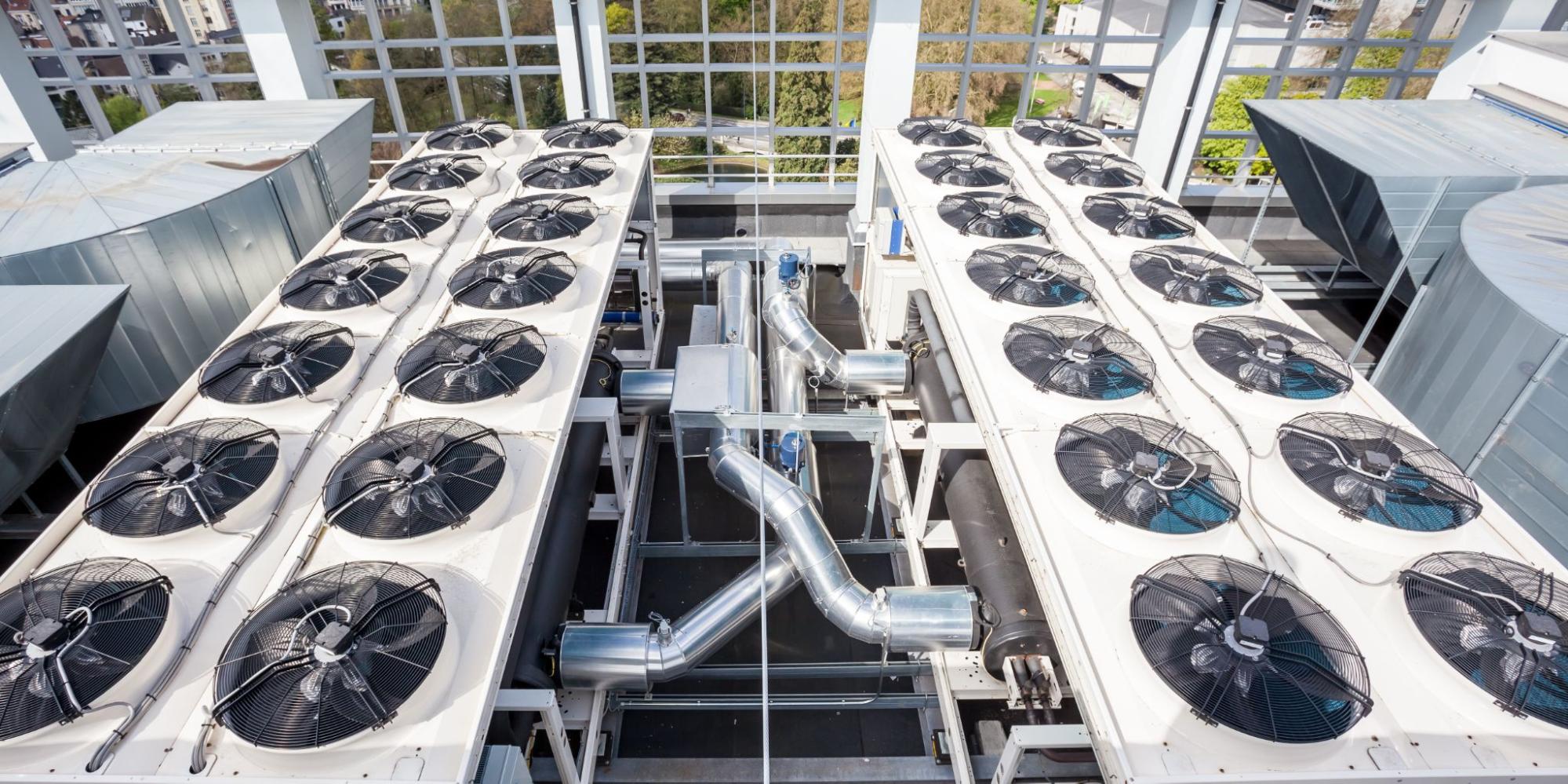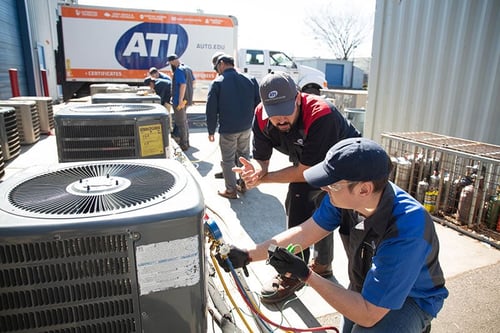Residential AC System Installation for Reliable Home Air Conditioning
Residential AC System Installation for Reliable Home Air Conditioning
Blog Article
A Thorough Consider A/c Providers and Their Influence On Energy Performance and Expense Savings
With technical advancements like clever thermostats and high-efficiency elements, the potential for maximizing system performance is large. As we explore the intricate connection in between HVAC systems and operational prices, including the shift in the direction of eco friendly alternatives, the concern arises: just how can these approaches be successfully implemented to optimize both economic and ecological benefits?

Relevance of A/c Equipments
HVAC systems are a crucial element of modern-day structures, playing a crucial duty in preserving healthy and comfy indoor environments. These systems, encompassing ventilation, air, and home heating conditioning, are necessary for regulating temperature, moisture, and air quality, consequently ensuring the well-being of occupants. Reliable cooling and heating systems contribute considerably to developing an optimum interior climate, which is vital for both business and household areas.
In business structures, HVAC systems are essential to supplying a secure and productive setting. By managing indoor climate problems, these systems assist stop the development of mold and mildew and the spread of air-borne impurities, thus protecting the health of staff members and clients. Furthermore, in domestic settings, HVAC systems boost living problems by supplying regular thermal convenience and enhancing indoor air high quality, which is important for general wellness.
Moreover, the layout and upkeep of HVAC systems have a direct influence on power consumption and operational prices. Appropriately made and maintained systems can substantially minimize power usage, resulting in lowered energy bills and a smaller sized carbon footprint. The performance of these systems thus plays a vital function in promoting sustainability and power preservation within structures, highlighting their value in the contemporary architectural landscape.
Breakthroughs in A/c Modern Technology
Development in a/c modern technology is reinventing the method buildings take care of indoor climates, ushering in a new period of effectiveness and control. Recent improvements have focused on maximizing power usage while improving individual comfort. One notable growth is the assimilation of smart thermostats, which use expert system to discover tenancy patterns and readjust temperatures accordingly, lowering unnecessary energy use.
Variable Refrigerant Flow (VRF) systems represent one more significant leap forward. These systems permit specific temperature control in various zones of a structure, enhancing convenience and lowering power waste. VRF modern technology is especially beneficial for large business areas, using adaptability and scalability.
Additionally, the introduction of Web of Points (IoT) gadgets has changed heating and cooling systems into interconnected networks efficient in real-time information collection and analysis. This connectivity enables anticipating upkeep, making sure systems run at peak efficiency and reducing unforeseen downtime.
In addition, improvements in materials and style, such as making use of high-efficiency coils and compressors, have actually improved general system efficiency - Heating Contractor. The fostering of ecologically friendly cooling agents additionally emphasizes the industry's commitment to sustainability
These technical advancements are critical in minimizing functional prices and ecological impact, setting brand-new requirements for building climate administration.
Cooling And Heating Upkeep and Effectiveness
Ensuring optimal performance of heating and cooling systems extends past technical innovations; it additionally rests on efficient maintenance practices. Routine upkeep is critical for sustaining efficiency, minimizing power intake, and prolonging the lifetime of cooling and heating systems. The key goal is to make sure find out here now that all parts work at their peak potential, thus decreasing power wastefulness and maintaining regular interior comfort levels.
Routine upkeep tasks, such as cleansing or changing air filters, checking refrigerant levels, and checking ductwork for leaks, are crucial for stopping unnecessary strain on the system. Clogged up or dirty filters can block air movement, triggering the system to function more challenging and consume even more power. Also, inadequate cooling agent levels can decrease cooling performance, resulting in higher operational costs.
Additionally, routine examinations by qualified specialists can recognize possible issues prior to they intensify into expensive fixings or system failings. These inspections typically consist of examining electrical connections, calibrating thermostats, and guaranteeing the overall integrity of the heating and cooling system. By addressing minor problems early, property owners and businesses can avoid unexpected malfunctions and improve energy efficiency.
Economical HVAC Solutions
For those aiming to obtain the most out of their air, ventilation, and home heating conditioning systems without breaking the financial institution, discovering cost-effective heating and cooling remedies can make a substantial difference. One prompt step is to purchase programmable thermostats, which enable individuals to establish particular temperatures for various times of the day, maximizing power use and reducing unneeded usage. By automating temperature level changes, house owners can achieve substantial savings on energy expenses.
Regular upkeep is copyright ac service an additional important part of cost-efficient HVAC management. Ensuring that filters are cleansed or changed regularly, ductwork is secured, and systems are serviced by professionals can prevent pricey fixings and improve system longevity. Preventive maintenance not only maintains system performance however also aids in preventing unexpected breakdowns that can result in pricey emergency repair services.
Furthermore, retrofitting existing systems with energy-efficient components, such as variable speed electric motors or high-efficiency compressors, can be a prudent investment. These upgrades boost operational performance, lower power use, and can often be executed at a portion of the price of a full system replacement.
Ecological Impact Decrease
Decreasing the environmental effect of heating and cooling systems is important in today's search of lasting living. HVAC systems are significant factors to power intake, making up virtually 40% of energy use in industrial structures. This energy demand typically relies upon fossil fuels, resulting in greenhouse gas discharges and ecological degradation. Transitioning to a lot more efficient systems, such as those using renewable resource resources, can substantially alleviate these influences.
Technological innovations in cooling and heating style and procedure, consisting of the assimilation of clever thermostats and energy-efficient her comment is here heatpump, are critical in decreasing carbon impacts. These technologies enable for enhanced energy usage, minimizing wastage and enhancing total system efficiency. Additionally, taking on routine maintenance techniques makes sure HVAC systems run at peak efficiency, further stopping unneeded energy consumption.
In addition, the usage of eco-friendly cooling agents is critical, as typical cooling agents, like CFCs and HCFCs, have been phased out as a result of their ozone-depleting residential or commercial properties. Modern choices, such as hydrofluoroolefins (HFOs), deal minimized environmental threats, straightening with international environmental methods. By embracing these sustainable techniques, HVAC solutions can play a transformative role in reducing ecological impacts, advertising energy efficiency, and promoting an extra lasting future.
Final Thought

Additionally, the layout and upkeep of Heating and cooling systems have a straight impact on power consumption and functional prices. Normal upkeep is crucial for maintaining effectiveness, lowering power intake, and extending the life span of Heating and cooling systems. A/c systems are considerable factors to energy consumption, accounting for nearly 40% of energy use in industrial buildings. Furthermore, embracing routine maintenance methods guarantees Heating and cooling systems operate at peak effectiveness, additional cutting unnecessary energy intake.
The change to eco pleasant A/c systems better promotes and reduces functional expenses sustainability. (Heating Contractor)
Report this page